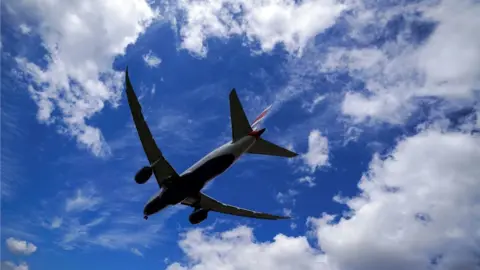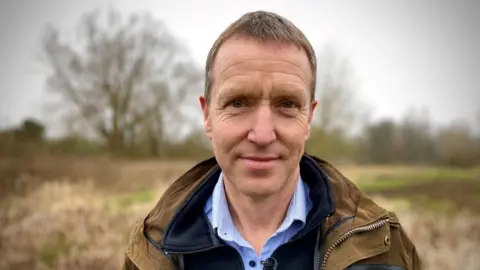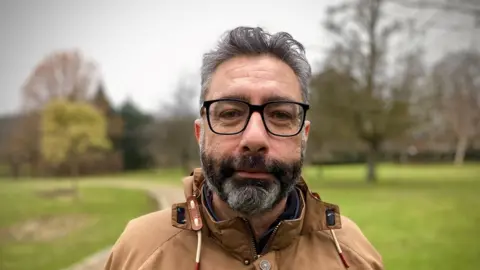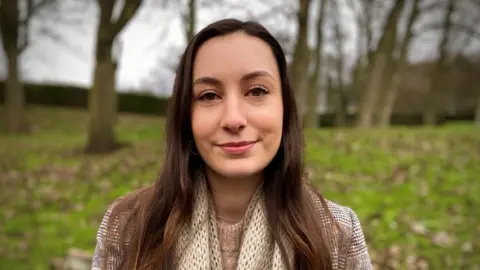Climate change: 'Carbon offsetting not get-out-of-jail-free card'
 PA Media
PA MediaAfter the COP26 summit in Glasgow last year there has been a focus on how to reduce carbon footprints. One way is through carbon offsetting schemes that try to balance emissions by finding other ways to reduce carbon in the atmosphere by an equivalent amount. But do they work?

'People need to change their behaviour'
 Martin Giles/BBC
Martin Giles/BBCThe World Land Trust, a environmental charity based in Halesworth, Suffolk, allows individuals and companies to offset their carbon emissions.
Richard Cuthbert, its director of conservation, says the money goes to "four of our projects around the world with our international partners and it's supporting the conservation of forests that would be otherwise be at risk and be at threat".
"These are projects in areas where there is really high biodiversity; they're also areas that are holding huge amounts of carbon and the areas are at threat from logging, fire from forest degradation," he says.
"So we support partners to have rangers on the ground, to work with local government, to work with local groups to protect those forests and, if we weren't doing that, those forest would disappear."
Mr Cuthbert believes over the past couple of years "there is growing interest and awareness in biodiversity and the impacts of climate change".
"Carbon-offsetting is not a get-out-of-jail-free card; people need to change their behaviour, companies need to change their behaviour and the government does," he says.
"It's all about measuring what you are doing - reducing as your first priority and anything you cannot avoid can be offset.
"So for that unavoidable emission that a company or individual has got no way of reducing any further, offsetting is a method to help reduce the impact of climate change."

'With climate change we have to try everything'
 Martin Giles/BBC
Martin Giles/BBCAsher Minns, executive director of the Tyndall Centre for Climate Change Research at the University of East Anglia, says carbon offsetting "tends to be used a little bit as an excuse sometimes".
"I can carry on this behaviour, I can fly, I can drive, I can use as much energy as I like, but that's not offsetting," he says.
"You absolutely have to reduce your emissions, get them as low as you can. The emission you absolutely can't do anything about, that's what you offset."
He says offsetting has to get carbon dioxide out of the atmosphere "which really means planting trees or sucking it into peat - the actual technology for sucking out of the atmosphere doesn't exist yet".
But he adds: "It's not a waste of time; it has its place, but only after all of those carbon dioxide emissions have been sucked out of the atmosphere or you weren't putting it there in the first place.
"With climate change we have to try everything because we don't know all the answers.
"If they use [carbon offsetting] in a proper way then it can be good and it can be beneficial."

'Help people take responsibility'
 Martin Giles/BBC
Martin Giles/BBCFree app Treekly plants a tree in Madagascar if a user completes 5,000 steps for five days in a week.
Amelia Ryan, from the Norwich-based company says the trees "are funded by climate-friendly sponsors".
She says the trees are planted by indigenous communities and there is also education for the local population "on how best to protect these trees".
"Carbon-offsetting is not a get-out-of-jail-free card; it is a lot more complex and carbon offsetting must be accompanied by behaviour change as well," she says.
She says the company hopes to expand the app to give users ideas on how to reduce their carbon emissions "helping people take responsibility, and we'll reward them with trees".

Find BBC News: East of England on Facebook, Instagram and Twitter. If you have a story suggestion email [email protected]
